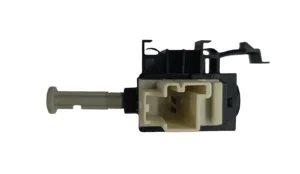Drive System Malfunction Audi Q7: The Audi Q7 is a luxurious SUV known for its performance and advanced technology. However, like any complex vehicle, it can experience issues. One of the more serious problems an Audi Q7 owner might face is a drive system malfunction.
Drive system malfunction in Audi Q7 means there’s a problem with the power transfer to the wheels. Common issues include transmission, driveshaft, or axle damage. Consult a mechanic.
In this article, we will cover everything you need to know about this issue, including common causes, symptoms, and potential solutions. For more details about Audi, begin your informational journey with Carsdensity.
Table of Contents:
Understanding Drive System Malfunction
The drive system in your Audi Q7 is a critical component that ensures power is effectively transmitted from the engine to the wheels. A malfunction in this system can lead to severe performance issues and potentially hazardous driving conditions.
What is the Drive System?
The drive system, also known as the drivetrain, includes the transmission, driveshaft, differential, and axles. These parts work together to deliver power from the engine to the wheels, allowing the vehicle to move.
What Does Drive System Failure Mean?
A drive system failure alert on a vehicle’s display indicates possible engine problems. This warning often relates to engine misfires, where one or more cylinders fail to operate correctly. Several issues could cause this alert.
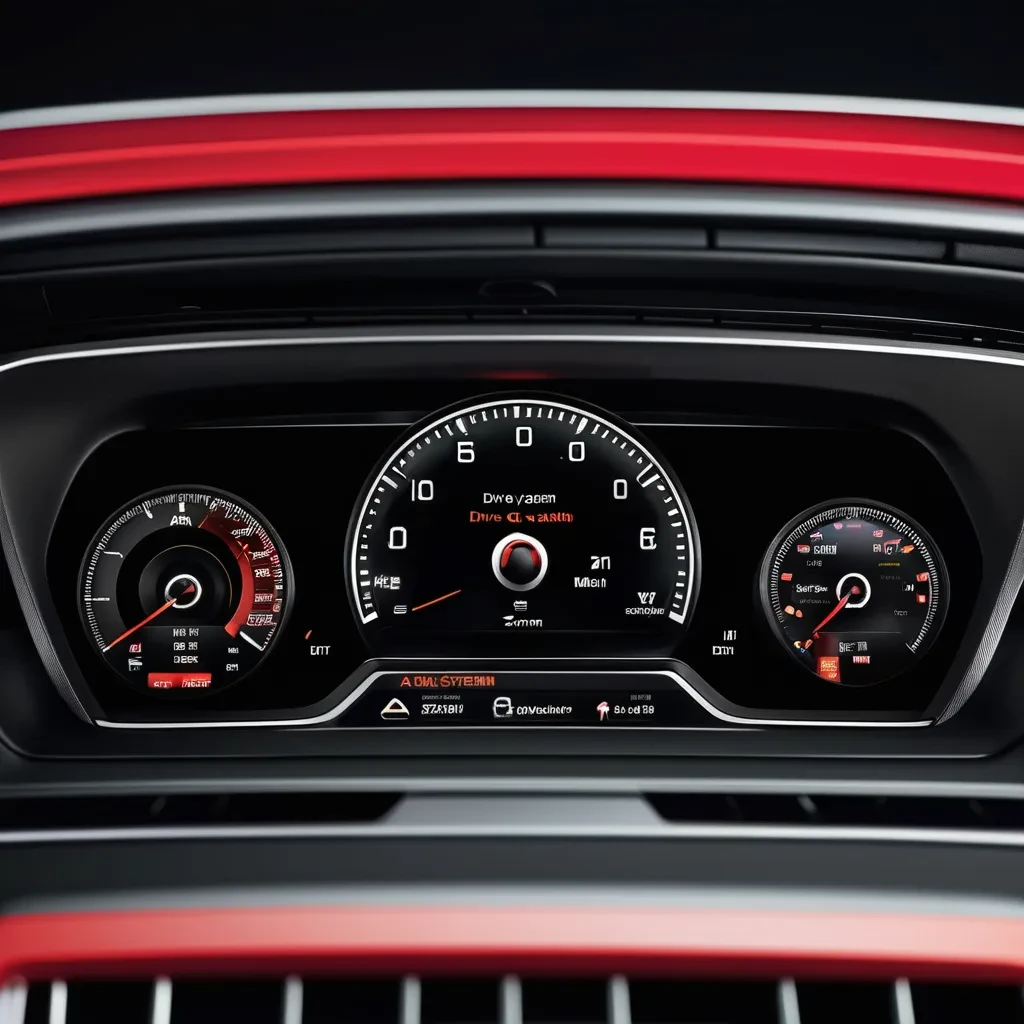
Engine misfires occur when specific cylinders malfunction, leading to noticeable vibrations. These vibrations are detected by the vehicle’s sensors, which then trigger the drive system failure message for the driver.
Read Also: Drive System Fault Audi – A Comprehensive Visual Guide!
Causes of Audi Q7 Drive System Failures
Owning an Audi blends style with advanced engineering. Despite its premium technology, the Audi Q7’s drive system can occasionally experience issues, which will prompt a dashboard alert for service.
1. Drive System Malfunctions:
Advanced technology can sometimes fail without a real problem. If you see a “Drive System Malfunction!” warning, try restarting your car to clear it. If the warning persists, there may be a genuine issue.
2. Timing Chain Concerns:
The timing chain is crucial for synchronizing engine valves. Malfunctions can cause engine rattles at startup or failed ignition. Repairs are costly, often around $1,000, and may be related to engine misfires.
3. Control Module Issues:
The control module manages the suspension system. When it fails, components like the actuator may also fail. Sometimes, simply resetting the system by cycling the ignition can resolve the problem.
4. Outdated System Drives:
Running outdated software can cause system malfunctions. Regularly update your Audi’s software. While vehicles may alert you about updates, consulting an Audi specialist ensures you have the latest version.
5. Acceleration and Malfunctions:
Excessive accelerator pressure can lead to false drive system malfunction warnings. Maintaining careful acceleration can help avoid these false alerts.
6. Addressing Engine Misfires:
Occasional engine misfires are normal but frequent misfires may indicate problems. If the drive system malfunction warning continues, consult a mechanic to check for underlying issues.
7. Steering Angle Sensor Concerns:
The steering angle sensor aligns tire movements with the steering wheel. Malfunctions may cause delayed responses or misalignment. Typically, calibration fixes the sensor, avoiding the need for replacements.
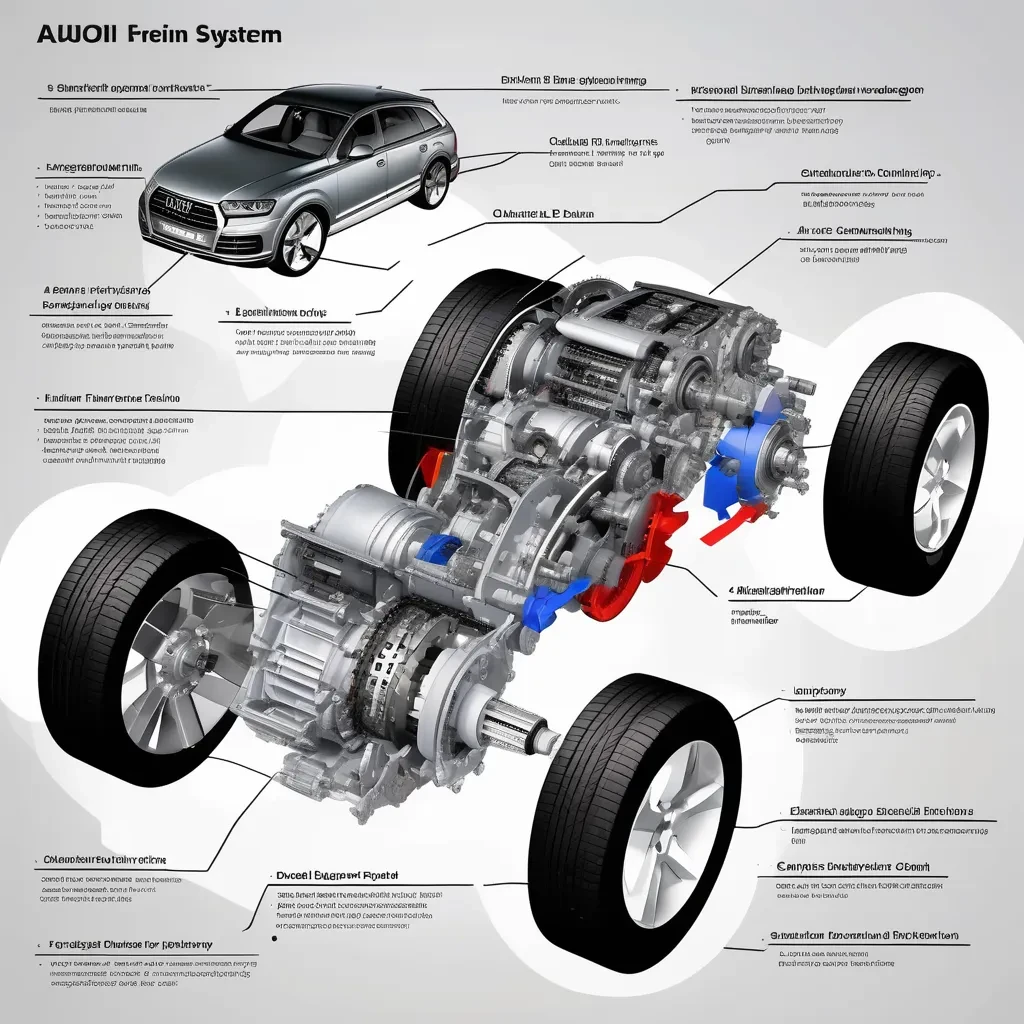
Read Also: Audi Bluetooth Function is Currently Unavailable – Discuss with us!
How to Fix the Problem?
Encountering a drive system failure in an Audi, such as spark plug issues, doesn’t have to be alarming. Sometimes, simply rebooting the vehicle can resolve the problem and restore normal function. For more complex issues, a visit to an automotive service center for a replacement may be necessary.
These problems may seem intimidating, but they often have straightforward solutions, getting you back on the road quickly. Given the complexity of drive system failures, seeking professional help is recommended over attempting repairs yourself.
For efficient and hassle-free solutions, Das European Autohaus is ready to assist. Located near Spring and Houston, TX, we are prepared to restore your Audi’s drive system to its optimal condition.
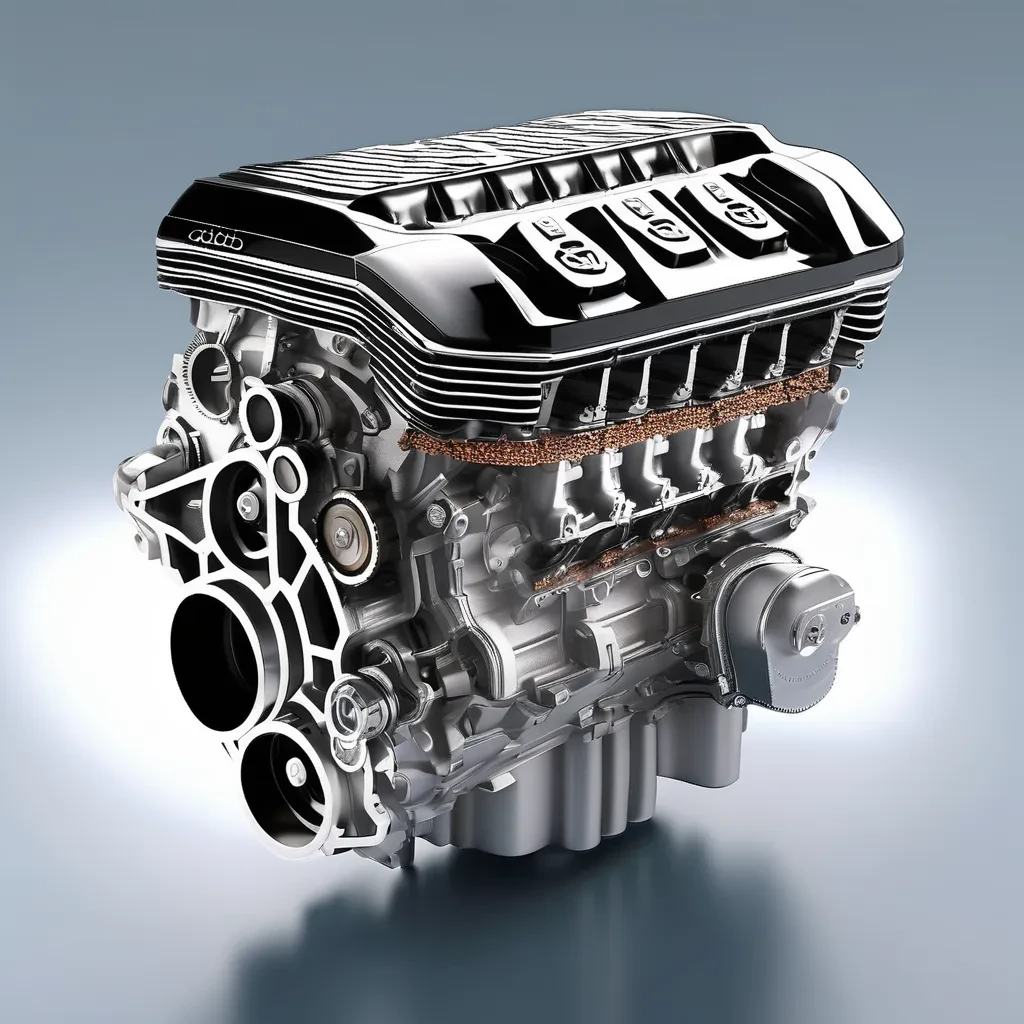
Read Also: My Audi Vehicle is not Parked Safely – Don’t take risks!
Repairing Engine Misfires – Stay Informed!
Essential Engine Functions:
For an engine to run properly, three key conditions must be met:
- Sufficient fuel supply
- Adequate oxygen for combustion
- A spark to start the combustion process
Common Causes of Misfires:
Engine misfires can be caused by several issues, including a faulty timing chain, worn spark plugs, or leaks in the system. Each of these components is crucial for the engine’s smooth operation.
Addressing Fuel and Oxygen Imbalances:
Leaks or clogged valves can affect the balance of fuel and oxygen needed for combustion. These issues often result from extended vehicle use and typically require system replacements and regular maintenance.
Read Also: Audi q7 years to avoid – Don’t take risks!
The Effect of a Faulty Timing Chain:
A defective timing chain can disrupt the timing of engine valve movements, leading to inefficient fuel intake and exhaust processes. This inefficiency can waste fuel and reduce the vehicle’s acceleration.
In severe cases, a faulty timing chain may cause the vehicle to stall, which poses safety risks. Due to the complexity of timing chain repairs, replacement is usually the preferred solution.

Signs of Drive System Issues in Audi Vehicles
- Warning Indicators:
One of the primary signs of drive system issues in Audi vehicles is the appearance of dashboard messages or warning lights specifically addressing drive system problems.
- Performance Challenges:
Drivers may notice reduced acceleration, decreased fuel efficiency, or unusual engine noises, indicating potential drive system issues.
- Handling Abnormalities:
Owners might experience steering irregularities or vibrations, particularly noticeable during acceleration or at higher speeds.
- Fluid Leakage:
Visible leaks beneath the vehicle or a sudden drop in fluid levels can signify underlying drive system concerns.
- Unusual Smells:
A burnt odor or unusual smells, especially after driving, could suggest overheating or stress within the drive system.
If any of these symptoms are observed, it’s essential to seek advice from a certified Audi technician promptly for a thorough diagnosis and necessary action.
Read Also: Audi Q5 Years to Avoid – Don’t take risks!
Causes of Audi Q7 Drive System Issues During Spring
Spring Weather Variations:
Variable springtime temperatures and sporadic downpours can affect the Audi Q7’s driving system. These temperature changes may affect lubricants and fluids, influencing the overall performance of the drivetrain.
Increased Road Travel:
With the onset of spring, road travel tends to increase. Longer drives, diverse road conditions, and higher mileage during this season can put additional stress on the Audi Q7’s drive system components, potentially leading to failures.
Component Wear and Tear:
Springtime can intensify the wear on critical drive system components. Extended usage and exposure to weather variations can hasten the depreciation of components like belts and bearings, which can lead to drive system failures. Regular maintenance becomes essential to prevent such wear-related issues.
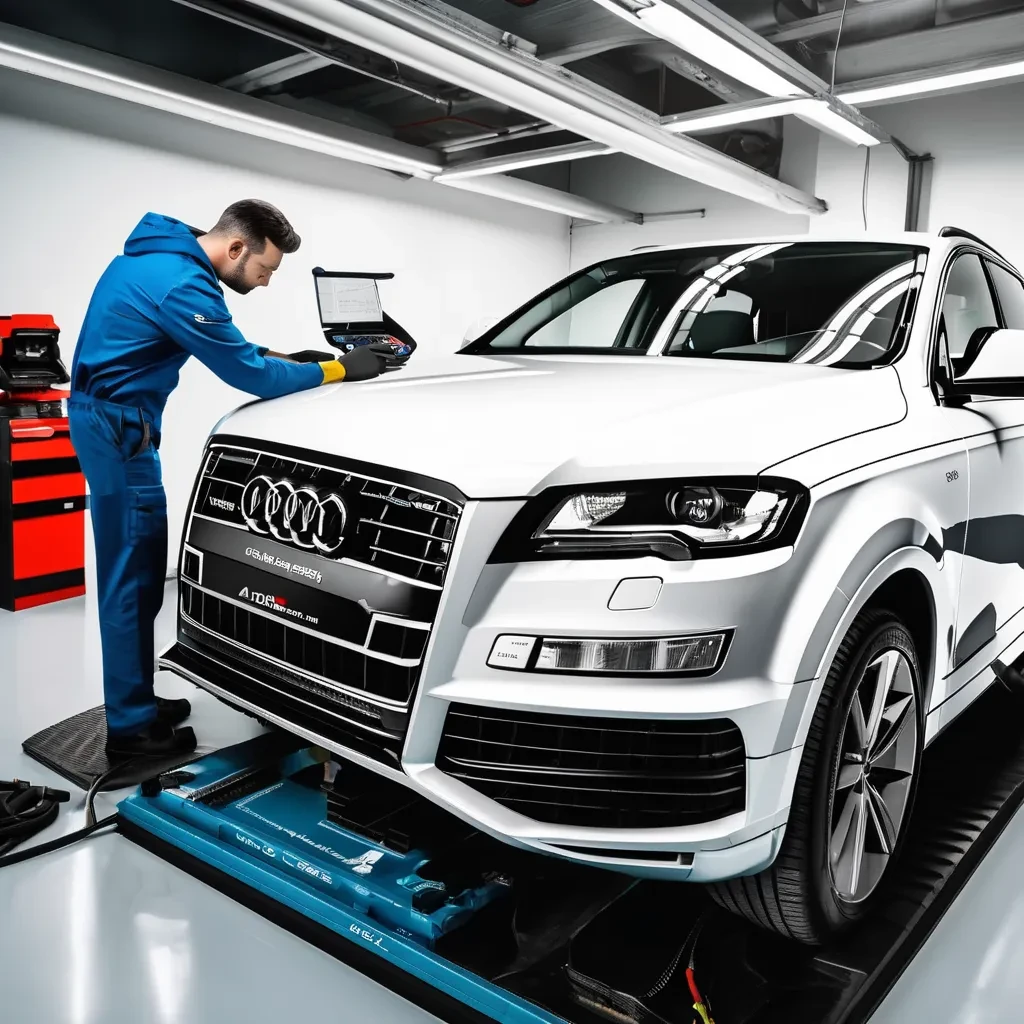
Understanding these specific causes of drive system problems in the Audi Q7 during spring is vital for addressing and preventing these issues effectively.
Read Also: Do Audi Dealers Negotiate? – A Complete Visual Guide!
Common Problems with the Audi Q7
- Reliability Concerns: The Audi Q7 is not particularly renowned for its reliability. It has received low ratings from sources like RepairPal, as SUVs like the Q7 tend to have higher ownership costs and require more frequent visits to the mechanic compared to sedans.
- Frequent Issues: Common problems with the Audi Q7 include engine issues, such as misfires and knock sensor failures.
Which light on the Audi Q7 indicates a malfunction?
The Check Engine Light on the Audi Q7 can be triggered by several issues, including a faulty head gasket, damaged emissions control components, a malfunctioning oxygen sensor, problems with the fuel injection system, a dirty mass airflow sensor, or broken spark plugs, among other reasons.
Read Also: Drive System Malfunction Audi Q5 – Causes, Symptoms, and Solutions!
Cost of Repairs for the Audi Q7
The yearly average expense for repairs and maintenance on an Audi Q7 is $1,185. This is higher compared to the average of $1,127 for luxury full-size SUVs and $652 for all vehicle models.
What does an Audi electrical issue mean?
An electrical malfunction in an Audi is often due to a faulty alternator or starter generator, which may require replacement. Additionally, a software update for the electrical system might be necessary. Other potential causes include damaged wires, corroded connectors, bad battery terminals, or a loose serpentine belt.
Is an Audi Q7 a Reliable Car?
Overall, Audi vehicles are known for their high build quality and advanced engineering. However, like any vehicle, they can encounter issues over time and may need new or used Audi Q7 parts. According to recent reliability data from WhatCar?, the Audi Q7 has proven to be a reliable choice among used cars.
Read Also: Audi vin decoder options list – Comprehensive Visual Guide!
Is the Audi Q7 Worth the Price?
Starting at $61,695, there’s much to appreciate about the Q7. Audi’s interior and exterior design has garnered many fans and awards. The build quality is excellent, the cabin space is competitive for its class, and the technology is impressive.
Which Year Audi Q7 is Best?
For reliability, the recommended years for the Audi Q7 are 2011, 2014, 2020, 2022, and 2023. These models are known to be the most dependable.
Which Engine is Better for the Audi Q7?
The Q7 Premium and Premium Plus trims offer both engine options, while the Prestige trim is only available with the 55 3.0L six-cylinder engine. Between the two engines, the 55 3.0L six-cylinder is the most powerful, while the 45 2.0L four-cylinder offers the best fuel efficiency.
Can I Use 87 Gas in My Audi Q7?
Using regular fuel (87 octane) in your Audi Q7 won’t damage the vehicle. However, it’s important to note that the vehicle may not perform as well with regular fuel compared to premium fuel.
Read Also: Audi q8 throttle lag fix – Don’t take a risk!
What Rivals the Audi Q7?
- Cars similar to the 2025 Audi Q7 include:
- 2025 Genesis GV80 (#7 in Luxury Mid-Size SUVs)
- 2024 BMW X7 (#15 in Luxury Large SUVs)
- 2024 Hyundai Palisade
- 2024 Mercedes-Benz GLS Class (#10 in Luxury Large SUVs)
- 2024 Volvo XC90
Is the Audi Q7 a Fast Car?
The standard 261-horsepower Audi Q7 can accelerate from 0 to 60 mph in just 6.7 seconds. It has an electronic top speed limit of 130 mph.
Read Also: Audi A4 Rattle When Accelerating – Causes, Diagnosis, and Solutions!
Resetting a Drive System Malfunction in the Audi Q7
If you encounter a drive system malfunction in your Audi Q7, a reset may sometimes resolve the issue. Here are the general steps:
- Turn Off the Engine: Turn off the engine and remove the key from the ignition. Wait for a few minutes to allow the vehicle’s systems to fully power down.
- Check the Battery:Make sure the battery terminals are firmly attached and clean. A weak or disconnected battery can cause system malfunctions.
- Restart the Vehicle: Insert the key back into the ignition and start the vehicle. Sometimes, a simple restart can clear temporary electronic glitches.
- Use Diagnostic Tools: If the malfunction light persists, use an OBD-II scanner to read and clear any error codes. This tool can provide specific information about the issue and can reset the warning light.
- Consult a Technician: If the reset does not resolve the issue, it’s essential to consult a certified Audi technician for a comprehensive diagnosis and repair. There could be underlying issues that need professional attention.
Frequently Asked Questions:
Is it safe to drive my Audi Q7 with a drive system malfunction warning light on?
Driving with the warning light is not recommended as it can indicate serious issues with the drive system. Immediate attention from a certified Audi technician is advised.
Are there any recalls related to the drive system in the Audi Q7?
It’s best to check with your local Audi dealership or the official Audi website for any recalls related to the drive system in your specific model year.
How can I prevent drive system malfunctions in my Audi Q7?
Regular maintenance, including fluid checks, belt inspections, software updates, and promptly addressing minor issues, can help prevent drive system malfunctions.
Is the Audi Q7 Quiet?
The Audi Q7 is known for its quiet cabin, offering a serene driving experience. While the ride is stable and controlled, it does have a slight firmness underneath.
How Many Miles Can the Audi Q7 Last?
With proper maintenance, an Audi Q7 can typically last between 150,000 and 200,000 miles. Investing in regular care can help avoid issues like persistent knock sensor problems.
Is the Audi Q7 Comfortable?
The Audi Q7 is considered one of the more comfortable vehicles in its class, providing a high level of comfort for its passengers.
Is the Audi Q7 High Maintenance?
Over the first 10 years of service, an Audi Q7 will cost about $12,489 for maintenance and repairs. This is $3,225 less than the industry average for luxury SUVs. There is also a 36.25% chance that the Q7 will require a major repair during this period.
How Much Does an Oil Change Cost for the Audi Q7?
An oil change for an Audi Q7 typically costs between $157 and $169. Labor costs range from $36 to $46, while parts are priced between $120 and $124. This estimate does not include taxes, fees, or location-specific costs.
What is the Top Speed of the Audi Q7?
The top speed of the Audi Q7 is 250 km/h.
Conclusion:
At the end of the conclusion,
The Audi drive system controls the suspension and related components. Audi owners often experience drive system malfunctions, which are influenced by various factors affecting the vehicle’s performance.








